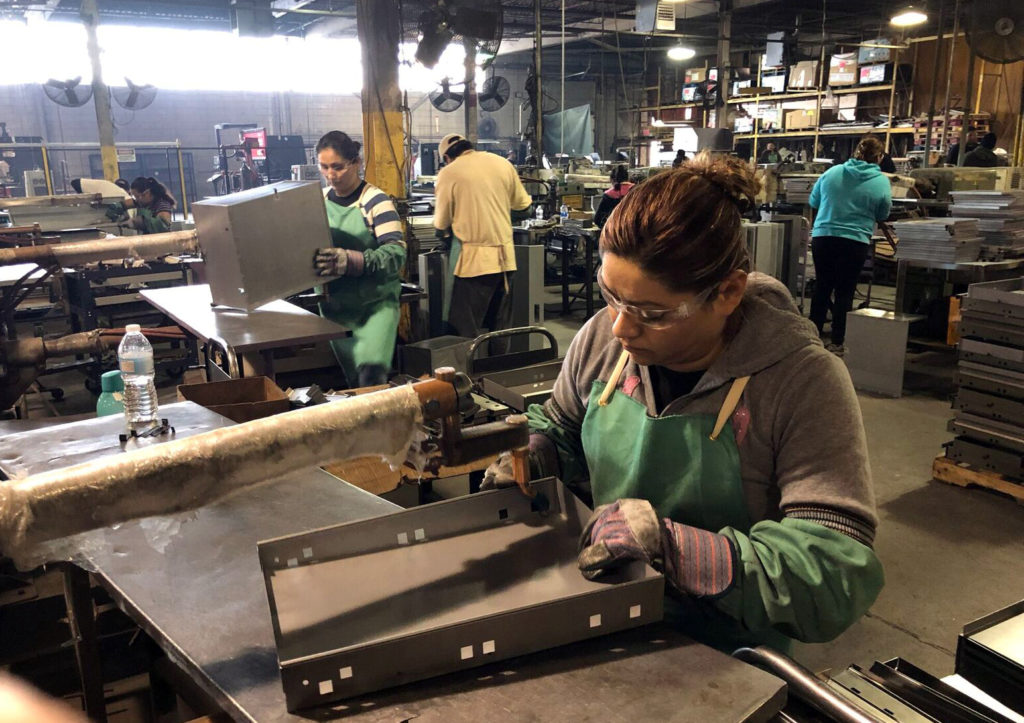
Industrial engineers are responsible for designing and implementing processes that minimize wastefulness and maximize the use of resources. They work in different industries to develop processes that are beneficial for their customers in a variety ways. They look at production schedules, design specifications, as well as workflows to help create more efficient processes. Moreover, industrial engineers are responsible for analyzing the efficiency of production processes to make the company more profitable. They also contribute to improving the quality of services and products.
For industrial engineers, there are job openings
The Industrial Engineer is a key role in any manufacturing company. They use innovative design systems to streamline operations for organic and natural food industries. The Industrial Engineer develops and leads innovative projects that improve the manufacturing process. An individual must be able to complete all necessary duties and meet the qualifications required to qualify for this position. Industrial engineers must be skilled in AutoCAD and Pro-E.

Industrial Engineers work on optimizing efficiency through the design and testing of integrated systems. Aside from this, the job also involves studying human work factors to maximize product quality and efficiency. Other responsibilities include guest coordination, cost analysis, logistics, and cost analysis. This person should also be proficient in Microsoft Office and advanced technical skills. Additionally, you will need to have knowledge in systems design, logistics, and manufacturing. Technical skills are essential to be able to do your job in Orlando.
Industrial engineers earn a salary
Consider the salary range for Industrial & Manufacturing Engineers in Orlando, FL. Orlando is one of the best places to live, with an average salary of $80,325 per year. This salary is 6% lower that the national average. It's also 9% lower than New York's average salary. The salary range in Orlando is between $64,260 and $96,390, with the middle 67% earning $85,000 per year and the top ten percent earning $102,000.
Salaries for Industrial Engineers in Orlando can range from $89,700 USD to $114,300 USD. Industrial engineers' salaries can vary, as with all careers. The salary figures listed above are based on the average salary for an Industrial Engineer with five to ten years of experience. However, people with more experience will make nearly twice the amount of those with less. However, the exact pay scales vary for different industrial engineers.
Responsibilities as an industrial engineer
This role will require you to identify the most effective processes and strategies for improving them. You will have to devise and implement efficient, flexible and effective processes to meet customer requirements and achieve business goals. The Industrial Engineer is responsible for many tasks such as Process Improvement, Capacity Planning and Reporting, Cost Analysis, Data Analysis, Capital Project Management and Discrete Events Simulation. It is also expected that you will perform time studies, observations, and contribute to cross-functional improvement efforts.

This job requires you to have excellent communication skills and experience as an engineer, as well a solid understanding of statistical analysis. Managers will be closely involved in the development of design standards for industrial engineers and leading moderately difficult projects. They will analyse data and produce statistical reports to improve quality, process flow, and standard times. They will coordinate and create key metric reports and process documentation.
FAQ
How does manufacturing avoid bottlenecks in production?
The key to avoiding bottlenecks in production is to keep all processes running smoothly throughout the entire production cycle, from the time you receive an order until the time when the product ships.
This includes both planning for capacity and quality control.
Continuous improvement techniques such Six Sigma can help you achieve this.
Six Sigma Management System is a method to increase quality and reduce waste throughout your organization.
It's all about eliminating variation and creating consistency in work.
What are the products of logistics?
Logistics refers to all activities that involve moving goods from A to B.
They include all aspects of transport, including packaging, loading, transporting, unloading, storing, warehousing, inventory management, customer service, distribution, returns, and recycling.
Logisticians ensure that the product is delivered to the correct place, at the right time, and under safe conditions. They provide information on demand forecasts as well stock levels, production schedules and availability of raw material.
They coordinate with vendors and suppliers, keep track of shipments, monitor quality standards and perform inventory and order replenishment.
How does a Production Planner differ from a Project Manager?
The primary difference between a producer planner and a manager of a project is that the manager usually plans and organizes the whole project, while a production planner is only involved in the planning stage.
What is the responsibility for a logistics manager
A logistics manager ensures that all goods are delivered on time and without damage. This is achieved by using their knowledge and experience with the products of the company. He/she must also ensure sufficient stock to meet the demand.
Why is logistics important for manufacturing?
Logistics are an essential part of any business. Logistics can help you achieve amazing results by helping to manage product flow from raw materials to finished products.
Logistics are also important in reducing costs and improving efficiency.
How can we improve manufacturing efficiency?
First, determine which factors have the greatest impact on production time. Then we need to find ways to improve these factors. You can start by identifying the most important factors that impact production time. Once you have identified the factors, then try to find solutions.
Statistics
- In the United States, for example, manufacturing makes up 15% of the economic output. (twi-global.com)
- In 2021, an estimated 12.1 million Americans work in the manufacturing sector.6 (investopedia.com)
- You can multiply the result by 100 to get the total percent of monthly overhead. (investopedia.com)
- Many factories witnessed a 30% increase in output due to the shift to electric motors. (en.wikipedia.org)
- (2:04) MTO is a production technique wherein products are customized according to customer specifications, and production only starts after an order is received. (oracle.com)
External Links
How To
How to Use the Just-In-Time Method in Production
Just-in time (JIT), is a process that reduces costs and increases efficiency in business operations. It's the process of obtaining the right amount and timing of resources when you need them. This means you only pay what you use. Frederick Taylor was the first to coin this term. He developed it while working as a foreman during the early 1900s. He saw how overtime was paid to workers for work that was delayed. He decided to ensure workers have enough time to do their jobs before starting work to improve productivity.
The idea behind JIT is that you should plan ahead and have everything ready so you don't waste money. It is important to look at your entire project from beginning to end and ensure that you have enough resources to handle any issues that may arise. If you anticipate that there might be problems, you'll have enough people and equipment to fix them. This way, you won't end up paying extra money for things that weren't really necessary.
There are different types of JIT methods:
-
Demand-driven: This type of JIT allows you to order the parts/materials required for your project on a regular basis. This will enable you to keep track of how much material is left after you use it. This will let you know how long it will be to produce more.
-
Inventory-based: This allows you to store the materials necessary for your projects in advance. This allows one to predict how much they will sell.
-
Project-driven : This is a method where you make sure that enough money is set aside to pay the project's cost. You will be able to purchase the right amount of materials if you know what you need.
-
Resource-based JIT: This is the most popular form of JIT. Here you can allocate certain resources based purely on demand. For example, if there is a lot of work coming in, you will have more people assigned to them. If you don’t have many orders you will assign less people to the work.
-
Cost-based: This is similar to resource-based, except that here you're not just concerned about how many people you have but how much each person costs.
-
Price-based pricing: This is similar in concept to cost-based but instead you look at how much each worker costs, it looks at the overall company's price.
-
Material-based - This is a variant of cost-based. But instead of looking at the total company cost, you focus on how much raw material you spend per year.
-
Time-based JIT: This is another variant of resource-based JIT. Instead of worrying about how much each worker costs, you can focus on how long the project takes.
-
Quality-based JIT is another variant of resource-based JIT. Instead of thinking about the cost of each employee or the time it takes to produce something, you focus on how good your product quality.
-
Value-based: This is one of the newest forms of JIT. You don't worry about whether the products work or if they meet customer expectations. Instead, you're focused on how much value you add to the market.
-
Stock-based. This method is inventory-based and focuses only on the actual production at any given point. It's useful when you want maximum production and minimal inventory.
-
Just-in-time (JIT) planning: This is a combination of JIT and supply chain management. It is the process of scheduling components' delivery as soon as they have been ordered. It's important because it reduces lead times and increases throughput.